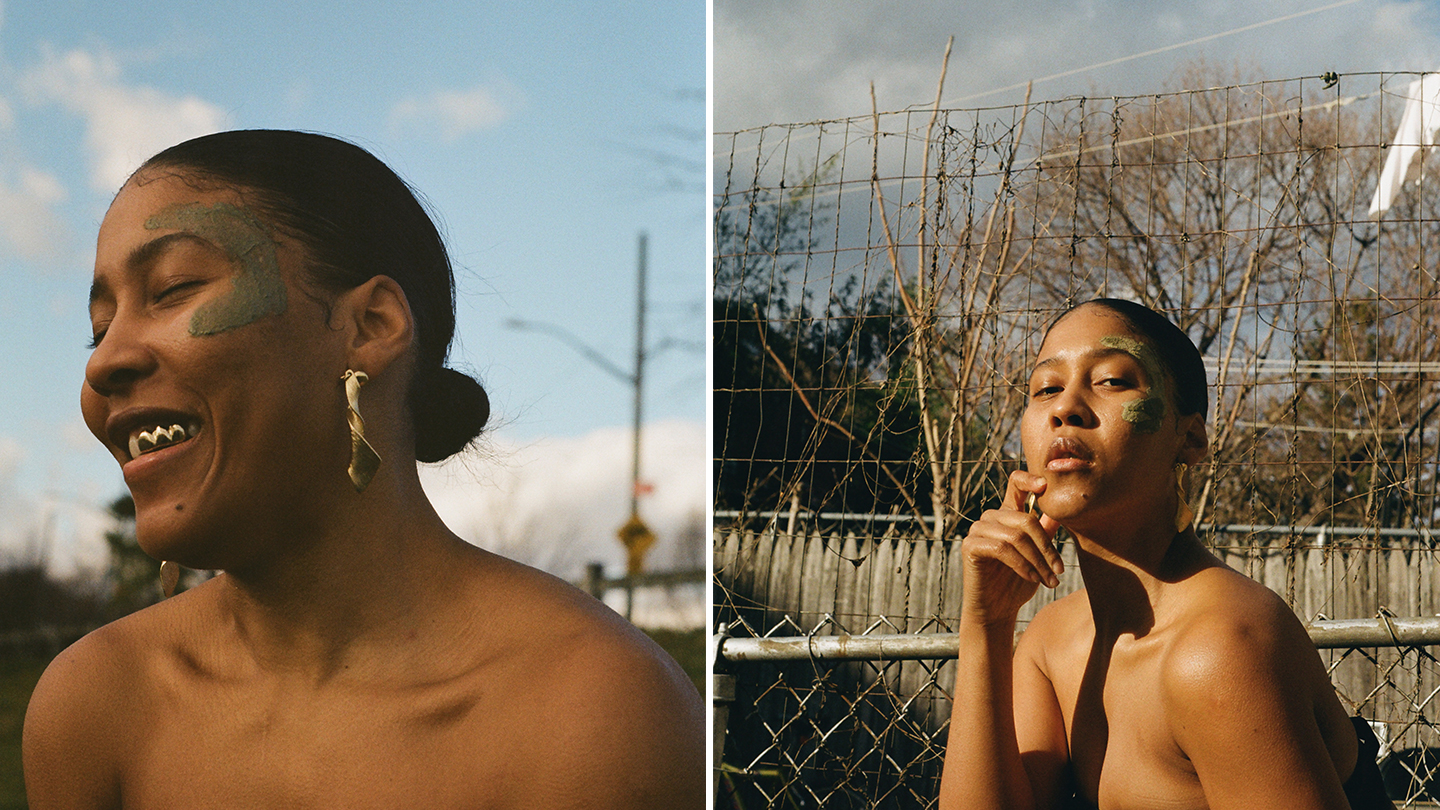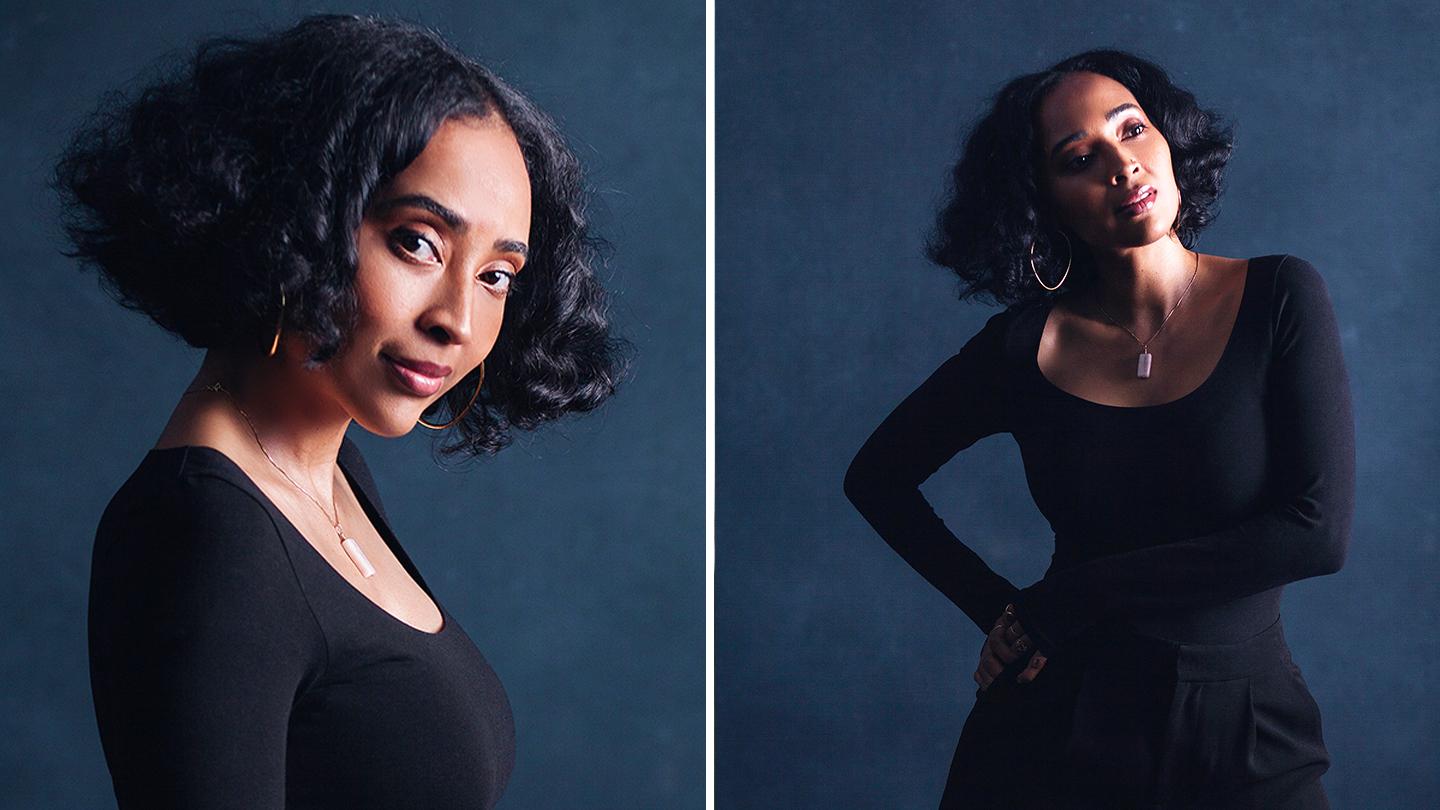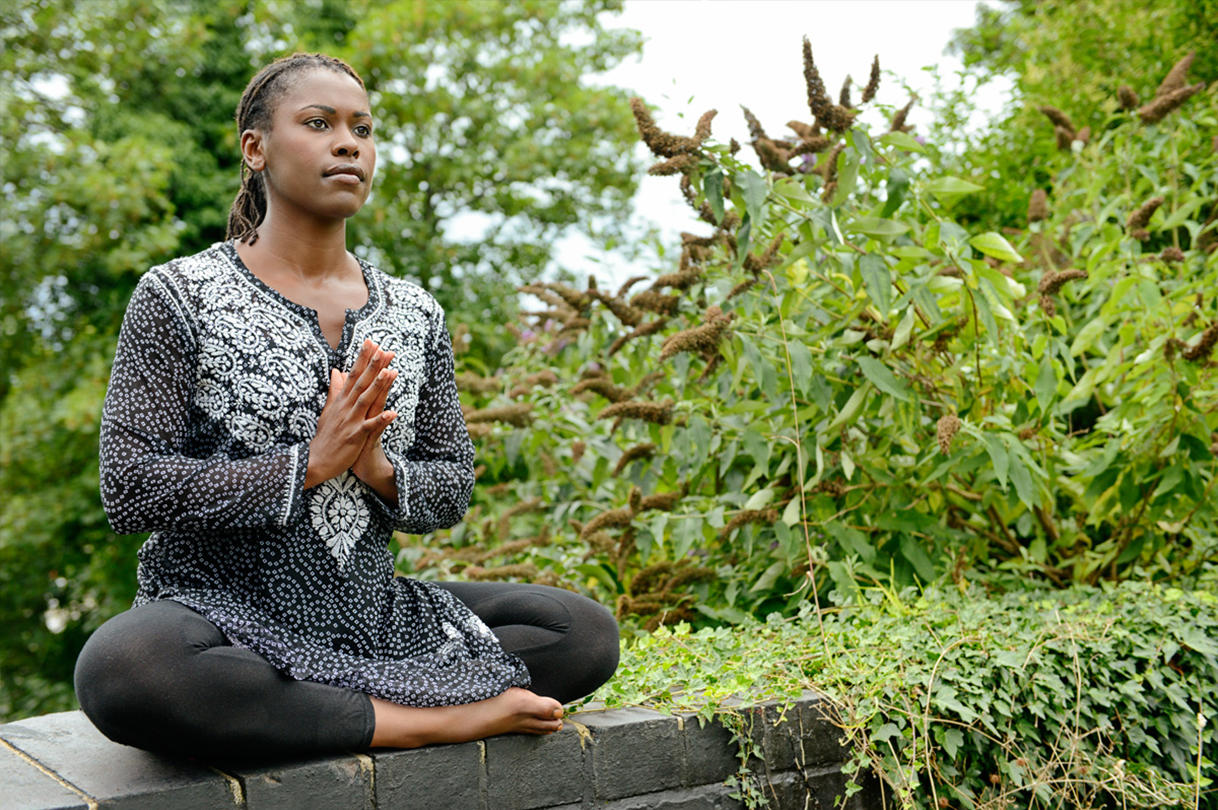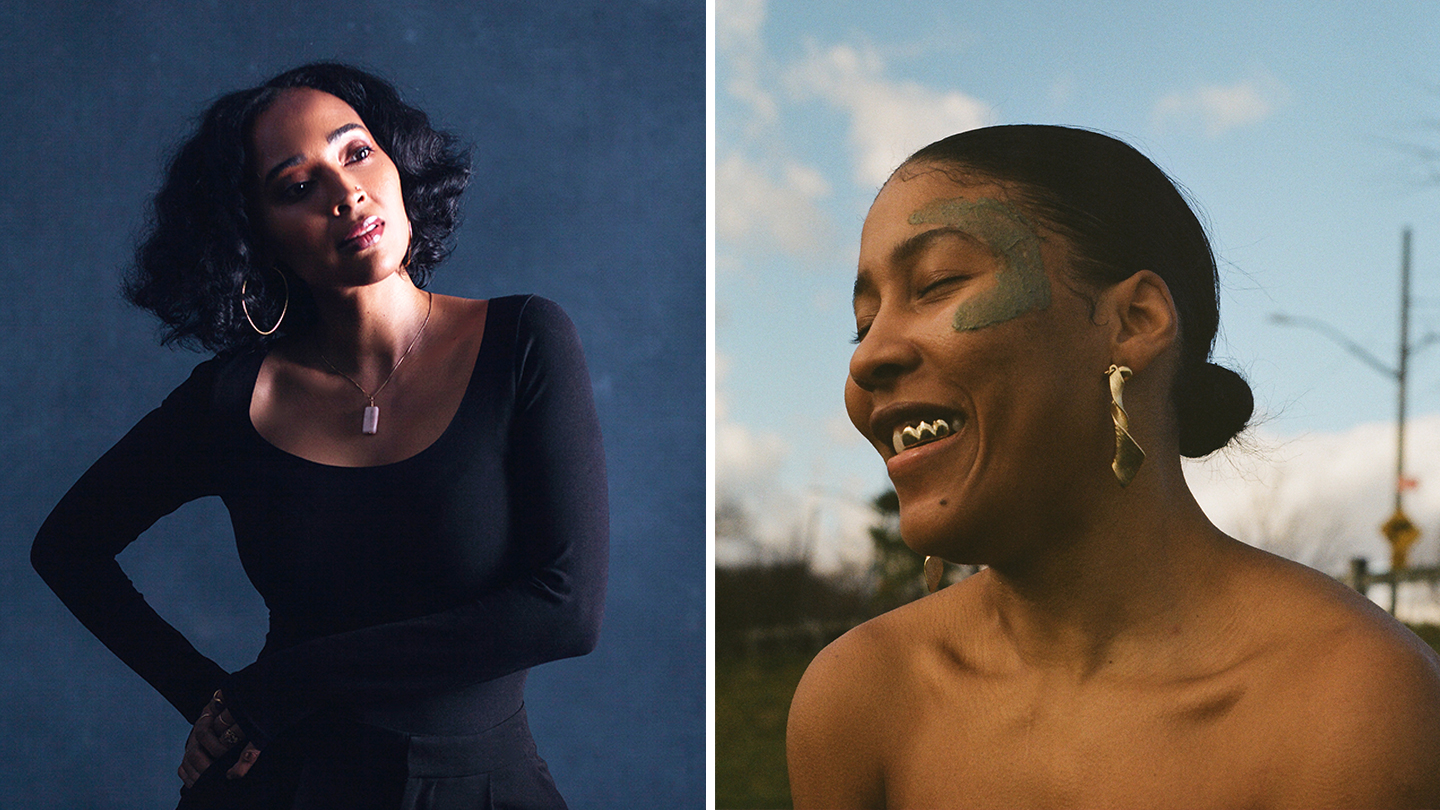I remember lying in a yoga studio once and realising — mid-shavasana — that I was the only black person in the class. To be honest, it’s a regular occurrence whenever I visited wellness spaces. From chanting in a kundalini workshop to talking to my yoni in a women’s circle, I searched for a sense of solidarity, but rarely saw a black face looking back. Wellness and whiteness have become so synonymous.
The lack of representation and diversity within the wellness industry is obvious, and can be seen from magazines and brand campaigns, right down to the racial ratio of many wellness classes and the practitioners leading them. It creates this assumption that to engage in health and wellbeing you need to have the right image, time and money to engage in it. And considering people of colour aren’t equally represented in wellness, it also seems you need to have a certain ethnicity to participate too.
Thing is, I’ve lost count of the times that I’ve visited my GP and been bombarded with the plethora of health issues that I’m predisposed to just because of my ethnicity. The 2014 Adult Psychiatric Morbidity Survey found that black adults have the lowest treatment rate for mental health issues, while type 2 diabetes is up to six times more common in those of South Asian descent and up to three times more common among people of African and African-Caribbean origin. When you combine that with everyday micro-aggressions, social media race rows, hate crimes and the general political climate, for people of colour, wellness becomes a case of self-preservation rather than a luxury.
Thankfully, the tide is slowly changing. Rather than waiting for the wellness world to invite us in, people of colour are creating wellness practices and spaces for ourselves. Websites like Gal-dem provide relatable coverage on mental health and self-care, and there are online communities such as Black Girl in Om, which promotes wellness practices for women of colour through accessible content, events and a podcast. But the list of wellness pioneers doesn’t start and end here.
i-D asked three founders about their work to redefine the face of wellness, and for their tips on how to take the first steps into the complicated road to spiritual wellbeing.

“It was automatic for me to celebrate the diverse ethnic beauty that I grew up surrounded by” — Annya Santana, founder of Menos Mas.
Menos Mas is a gender fluid, clean beauty line and online community that’s all about caring for the skin and body from the inside-out. Dubbed a “wellness lifestyle for the culture”, it provides accessible tips that work alongside cultural values.
“I am an immigrant and Afro-Latina raised in The Bronx. When I was growing up, I never saw myself represented in campaigns, ads or mass media. The world taught me that my nappy hair, my melanin, the very root of me wasn’t worthy or deemed beautiful. So when I started Menos Mas, I wanted to celebrate the diverse ethnic beauty that I grew up around. The brand was born out of a simple need to fix my acne. Now, the brand is about bridging the gap between wellness and culture.
When I first started incorporating wellness into my life, I found myself kicking down the door into spaces that weren’t built for me. I reaped all of the benefits of bettering myself but at the cost of removing my community, culture and people I identify with from my experience. I grew tired of seeing so much cultural appropriation happening in fitness classes I attended, in the wellness influencers I was surrounded by.
There is such an abundance of information on how to become a healthier person, but that information isn’t trickled down to the people who need it the most. Our voices, interests and concerns are completely neglected and therefore, we completely dissociate a healthy lifestyle from ourselves. That’s why Menos Mas is a space and community to celebrate our rich culture but also how much we actually care. I feel it’s my duty to empower not just one another but the entire generation, to embrace the very best of who we can be without losing touch of who or where we came from.”
Santana’s advice: “Wellness is a marathon not a sprint, and my big mantra — the very translation of Menos Mas — is ‘less is more’. I recommend starting with attainable goals that you can achieve daily. Once something [becomes] an automatic part of your daily life, you can layer on more.”

“I often reflect on the fact that my ancestors had to make do without all of the open knowledge and freedom we have today.” — Lalah Delia, spiritual practitioner, writer and educator.
Lalah Delia shares her spiritual writing on Instagram , which makes wellness advice accessible to those who may not otherwise engage in it. Her Vibrate Higher Daily website offers lessons on topics such as thought-management and emotion processing.
“Being the child of an African-American and a Latinx, I have seen how both communities have the passion, need and desire to live fuller, healthier, and more whole lives. Historically, it has been people of colour who would nurture and care for white families without the best resources or regard for their own wellbeing and family. We are the grandchildren, the great-grandchildren, and great-great-grandchildren of these exhausted caregivers. It’s in our genetic memory, through trauma and inequality, that [self] care isn’t a priority. Our communities need to have equal access to success: mind, body, spirit and overall life-wise.
While black people in the Middle Passage and transatlantic slave trade were able to sneak herbs, seeds, spiritual roots and knowledge with them onto those ships, the same spiritual and wellness path we popularise now was whipped, beaten, programmed and manipulated out of them, until most medicine people were killed or died. We have to remain mindful that most of the mainstream spiritual and wellness models have popularised and even appropriated what has originated amongst people of colour from around the planet. We have to do our best to include these people. It’s the spiritually ethical thing to do.
I see my work and visibility, along with that of my sister friends in wellness, as opening up minds to the type of work, community and lifestyles available to WOC, particularly a lifestyle of self-care, self-empowerment, spirituality and service to humanity. When I couldn’t see representation it hurt intensely; it triggered ancestral wounds. So I took matters into my own hands and I created it. Along with my WOC peers, I have become a bridge between worlds that haven’t always welcomed each other, with clear signals, messaging and open arms.”
Delia’s advice for navigating wellness: “We often breathe in survival mode, stress mode, and not in peace and higher harmony. So much of what we take in is affecting our breath, so I advise slowing down and breathing fully.”

“It is my vision to create a space where women of colour receive the care they deserve and desire.” — Stacie Graham, founder of OYA: Body-Mind-Spirit Retreats
OYA: Body-Mind-Spirit Retreats aim to provide a welcoming space for women of colour to come together and experience the benefits of holistic movement and mindfulness.
“Many black women and women of colour do not have spaces where they feel comfortable exploring yoga, mindfulness, meditation, Reiki and other forms of holistic wellness. One obvious reason for that is that wellness has become a multi-billion pound industry, and most brands and studios are more concerned with profits than the wellbeing of their patrons and so it’s not affordable to practice yoga or receive treatments in yoga studios. Another concern is much more insidious; black women and women of colour often do not see themselves as the target audience of wellness.
Across every industry, women of colour are neglected and corporate companies often act surprised when a line like Fenty Beauty comes along and sells out within days. We remain underserved and undervalued as consumers with buying capacity. Black women and women of colour are often — both in their professional careers and their roles at home — caretakers. They spend their lives caring for everyone except themselves. The only way to change that is to see more projects, products and brands be founded by us, with us in mind. I founded OYA Retreats almost three years ago and it is my vision to create a space where [women of colour] receive the care they deserve and desire.”
Graham’s advice: “I highly recommend a daily gratitude practice. It reminds us to accept where we are in the present, allows room for compassion toward perceived deficits and helps us get back on the wagon when we’ve fallen off. There are many ways to practice gratitude; you can write notes or say it aloud. What’s important is that you do it every day.”
